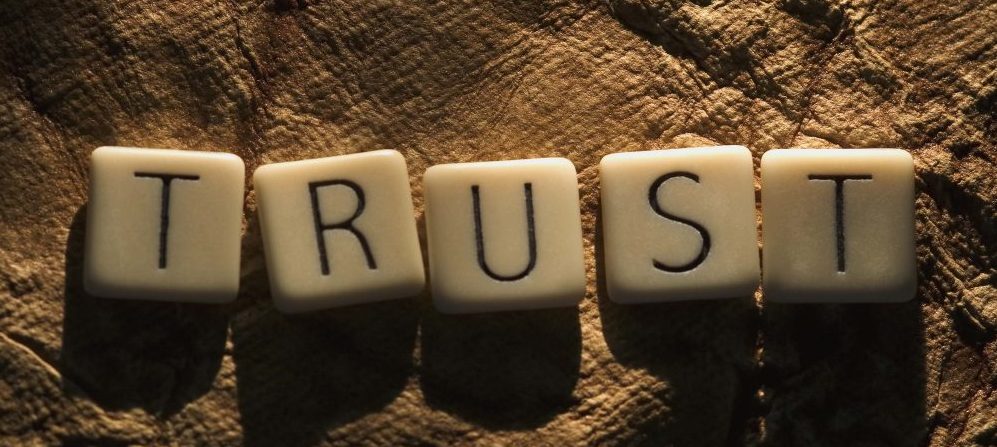In my camaraderie series, I discussed declining camaraderie in my office, some of the reasons for the decline, and ideas to bring camaraderie back into the workplace. But what if these events are already available, and workers choose to not participate? This is a symptom of low morale. If your office suffers from low morale, it will take more than superficial actions to try to increase morale. Whether the low morale is a result of too much work, too little pay, poor leadership, or fear of the future, the “cure” is the same, but it takes time to achieve.
This article in the Harvard Business Review digs deeper into reasons why workers don’t socialize. In order to develop camaraderie, employees need a shared purpose, and the work atmosphere should be that of empathy, kindness, and compassion. That type of atmosphere fosters trust, and trust is a “performance multiplier” according to Steven M.R. Covey. In his article on how leaders build trust, he refers to trust as an account; “taxes” / withdrawals can be made, and “dividends” / deposits can be made. If the only transactions are withdrawals, the “account” will be depleted and trust will be lost.
Symptoms of Low Trust
Does your organization suffer from low trust? Common “low trust” organizational behaviors (from “The Speed of Trust” by Steven. M.R. Covey) include the following behaviors:
- common “CYA” behavior
- hidden agendas
- cynicism
- militant stakeholders
- internal “camps” of allies and enemies
- many dissatisfied employees and stakeholders
- frequent micromanagement
- bureaucracy and redundancy in systems and structures.
Sound familiar? If not, you are lucky! In a low trust organization, information is not freely shared, there are hidden agendas, and doubts about employees’ and management’s commitment to the organization. It’s no wonder employees don’t want to socialize outside of work! It takes trust to share their personal lives with others, and if trust is low then the last think an employee wants to do is spend more time with co-workers.
Behaviors of Trust
The Covey article identifies thirteen behaviors of trust:
- Talk straight
- Demonstrate respect
- Create transparency
- Right wrongs
- Show loyalty
- Deliver results
- Get better
- Confront reality
- Clarify expectations
- Practice accountability
- Listen first
- Keep commitments
- Extend trust
Of the trust behaviors, transparency and respect are at the heart of what employees need from their leaders and organizations. At an organizational and/or governmental level, the number of regulations are reflective of the level of trust. Someone has abused the trust, and now everyone has new  regulations to ensure proper behavior.
regulations to ensure proper behavior.
The best leaders are the ones who we can trust. The best co-workers and employees are the ones who we can trust. Trust is earned over time by leaders and workers who exhibit “trust behaviors.” It should be possible to re-establish trust within an organization if a conscious effort is made to focus on the above behaviors, especially respect and transparency. As trust increases, morale should also increase, and the interest in attending work-related social activities should also increase.
Trust Yourself
As leaders (and we are all “leaders” in some way, even if we aren’t in a leadership position), set the example by reaching out and connecting with your co-workers. This article offers suggestions for building trust within a team. If you are a supervisor, it’s important to gain employees’ trust. Several suggestions are offered in this Forbes article. If you can’t gain everyone’s trust, the article suggests focusing on your top 20% of employees. If you can earn the trust of all your employees, even better.
It takes time to reverse trends, and it can seem overwhelming. If you wonder where to start, begin with yourself. Are YOU doing what you can to foster camaraderie in your workplace?
“The process of building trust is an interesting one, but it begins with yourself, with what I call self trust, and with your own credibility, your own trustworthiness. If you think about it, it’s hard to establish trust with others if you can’t trust yourself.”― Stephen M.R. Covey





Becky:
Your recent blogs have been spot on and something some of us older federal employees see but have a hard time addressing. One thing I don’t think I recall you addressing in previous blogs is how generational differences play into the trust and even camaraderie issues. I see this as something people have tried to address in government but the response of its reality is usually a cold shoulder from all generations not willing to acknowledge the benefits and faults of each generation and poo-pooing it all and claiming its always the other generations fault. Just a little more food for thought.
Thanks! And a good point about generational differences. Some survey respondents mentioned that one thing that helped us bond was “we were all about the same age.” I think that does help with camaraderie, but in reality the current workplace is very diverse with regard to age. Several members of my LDP class have children the same age as my grandson. I think a stronger mentoring program between the baby boomers and the millenials would help establish trust and friendships.